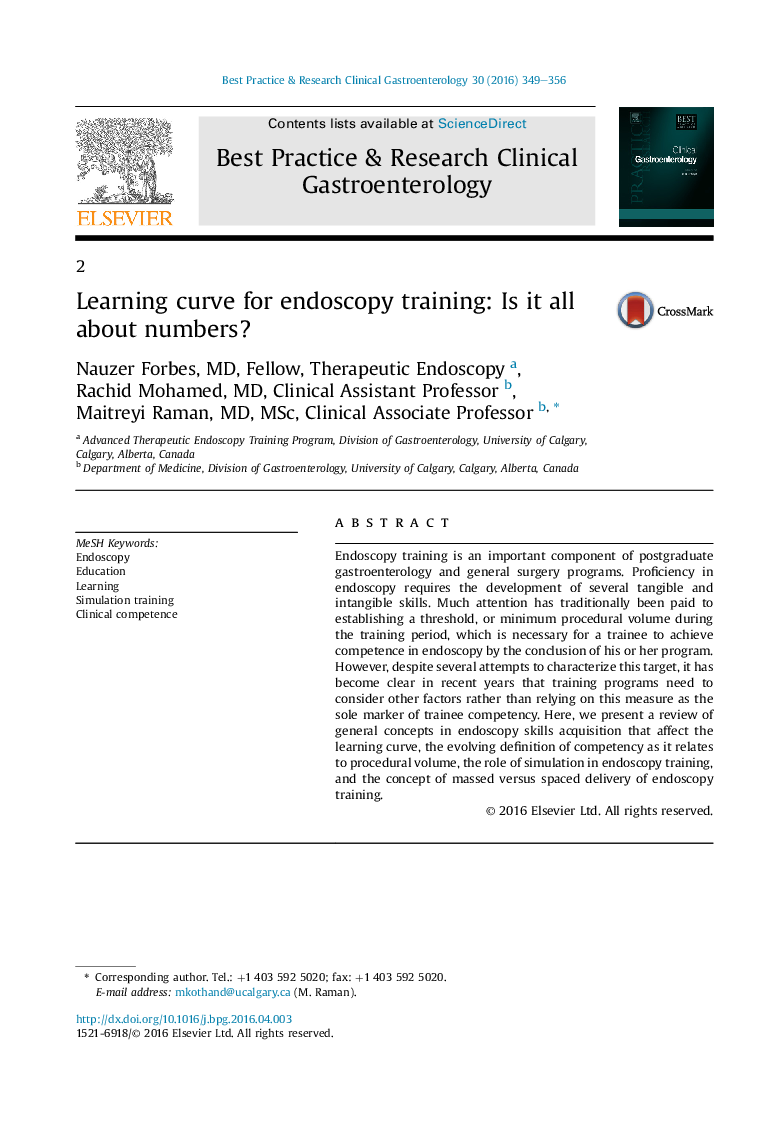| Article ID | Journal | Published Year | Pages | File Type |
|---|---|---|---|---|
| 3254034 | Best Practice & Research Clinical Gastroenterology | 2016 | 8 Pages |
Endoscopy training is an important component of postgraduate gastroenterology and general surgery programs. Proficiency in endoscopy requires the development of several tangible and intangible skills. Much attention has traditionally been paid to establishing a threshold, or minimum procedural volume during the training period, which is necessary for a trainee to achieve competence in endoscopy by the conclusion of his or her program. However, despite several attempts to characterize this target, it has become clear in recent years that training programs need to consider other factors rather than relying on this measure as the sole marker of trainee competency. Here, we present a review of general concepts in endoscopy skills acquisition that affect the learning curve, the evolving definition of competency as it relates to procedural volume, the role of simulation in endoscopy training, and the concept of massed versus spaced delivery of endoscopy training.
